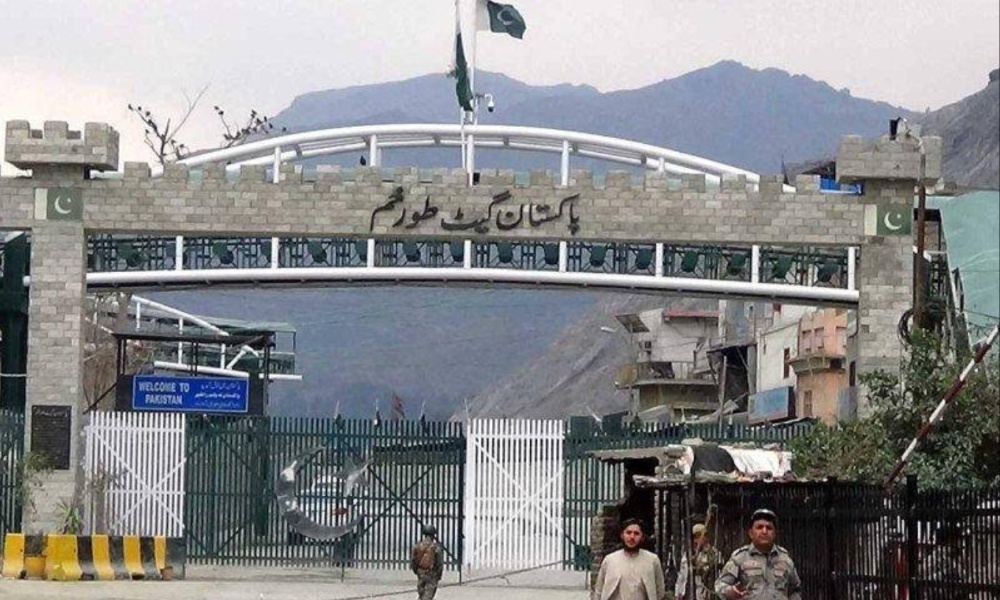Business
Liquidity crisis at core of Afghanistan’s economic challenges: SIGAR

Afghanistan continued to face a severe liquidity crisis this quarter with access to physical bank notes constrained and banks facing major liquidity challenges due to declining economic activity, lack of trust in the banking center among Afghans, and an inability to transact internationally.
The US Special Inspector General for Afghanistan (SIGAR) said in its latest quarterly report that Da Afghanistan Bank (DAB), Afghanistan’s central bank, will require significant technical support from the international community to tackle these challenges.
The report stated that prior to the Islamic Emirate of Afghanistan’s (IEA) takeover in August last year, Afghanistan’s financial system had been underdeveloped relative to the context of its growth in recent decades, with a low assets-to-GDP ratio and a heavily dollarized banking system.
Approximately 60% of deposits in the country were made in foreign currency. The report stated that in this monetary environment, maintaining financial stability requires both domestic currency (AFN) liquidity and, more importantly, foreign exchange (FX) liquidity.
However, DAB is limited in its ability to control the AFN monetary supply and value due to several factors including the lack of domestic technical capabilities to print currency, which Afghanistan outsources to foreign companies.
“For years, DAB would prop up the value of the afghani (AFN) by regularly auctioning US dollars pulled from its foreign reserves. Prior to August 2021, Afghanistan’s central bank reportedly received quarterly shipments of $249 million in US banknotes from its foreign reserves. This stopped after the Taliban (IEA) takeover prompted the United States to place a hold on US-based Afghan central bank reserves.
“The loss of these US dollar transfers and other sources of foreign currency plunged Afghanistan’s financial system into free fall,” SIGAR stated.
With Afghanistan’s international reserves, including banking sector foreign exchange deposits at the DAB, frozen; the SWIFT system and international settlements suspended; grant transfers suspended; and AFN liquidity printing interrupted, a dramatic adverse shock in the financial and payment systems ensued.
The resulting liquidity crisis has caused salary disruptions for hundreds of thousands of government employees, teachers, and health-care workers, and has imposed limitations on the operations of international aid groups in the country.
“The banking system is totally paralyzed. The central bank is not operating,” according to Robert Mardini, director general for the International Committee of the Red Cross as cited by SIGAR.
Mardini said that his organization is instead paying 10,000 doctors and nurses via the informal hawala money-transfer system.
This has also contributed to a worsening domestic credit market. In the absence of international support, banks have ceased extending new credit to small- and medium-sized enterprises.
In recent months, the increased supply of US dollars from humanitarian channels, averaging around $150 million per month, has helped stabilize the value of the afghani.
However, these humanitarian channels are viewed as stopgap measures that are an insufficient substitute for the normal functioning of a central bank, SIGAR stated.
In her March 2 statement to the UN Security Council, UNAMA head Deborah Lyons cited the “lack of access to hard currency reserves, lack of liquidity, and constraints on the central bank to carry out some of its core functions” as key challenges to reviving the Afghan economy.
Total international DAB reserves were $9.76 billion at the end of 2020, according to the most recent data available to the IMF. Of this amount, $2 billion was deposited in financial institutions in the United Kingdom, Germany, Switzerland, and the United Arab Emirates.
Some $7 billion in DAB reserve funds deposited at the Federal Reserve Bank of New York are now frozen by the US government.
Economists at New York University and the University of Chicago suggested that if central-bank reserves were placed directly with households or with other financial intermediaries, it could enhance the desired increase in liquidity.
Liquidity is a concern for households as well as for the banking system and businesses. Raising household liquidity in Afghanistan is challenged by rising unemployment, the fact that only 10–20% of Afghans have bank accounts, the uncertain status of DAB’s electronic payment system and the declining volume of market transactions as reflected in the country’s declining GDP.
SIGAR stated however that the Biden Administration is currently exploring possible avenues for disbursing $3.5 billion of the frozen assets for humanitarian relief efforts, possibly through a separate trust fund or by providing support through the United Nations or another enabling organization.
US Special Representative for Afghanistan Thomas West has stated that the $3.5 billion could alternatively contribute toward “the potential recapitalization of a future central bank [in Afghanistan] and the recapitalization of a financial system.”
The move to freeze assets meanwhile sparked outrage throughout Afghan society, including among leaders unaffiliated with the IEA.
Shah Mehrabi, a long-time member of the Afghan central bank’s board of governors, called the decision “unconscionable” and “short-sighted.”
Mehrabi argued that the central bank should be treated as independent of the IEA regime, and that depriving the bank of its reserves could lead to “total collapse of the banking system” and further hurt millions of Afghans suffering in the economic and humanitarian crises.
The order to freeze assets has also drawn criticism from US and international policy analysts, human rights groups, lawyers, and financial experts, SIGAR reported.
Analysts have expressed concern over both the seizure of the reserves and the reported proposals to provide those funds in the form of humanitarian assistance.
Paul Fishstein of NYU’s Center on International Cooperation argues that the executive order gave inadequate attention to the macroeconomic collapse of the country.
Fishstein said the release of the central bank’s reserves could instead be used to restore unnecessary exchange rate stability and ease the liquidity crisis.
William Byrd of the US Institute of Peace (USIP) said that even if only half of DAB’s total reserves are devoted to support its basic activities as a central bank, it would “provide an opportunity to make a start toward stabilizing the economy and private sector.”
Business
Trump unveils first $5 million ‘gold card’ visa

Holding a prototype that bore his face and an inscription “The Trump Card”, the Republican president told reporters that the special visa would probably be available “in less than two weeks”.
“I’m the first buyer,” he said. “Pretty exciting, huh?”
Trump previously said that sales of the new visa, a high-price version of the traditional green card, would bring in job creators and could be used to reduce the US national deficit.
The billionaire former real estate tycoon, who has made the deportation of millions of undocumented migrants a priority for his second term, said the new card would be a route to highly prized US citizenship.
He said in February that his administration hoped to sell “maybe a million” of the cards and did not rule out that Russian oligarchs may be eligible.
(AFP)
Business
Trump imposes 10% tariff on imports from Afghanistan
The tariffs, he said, were a response. The base tariff of 10 percent on almost all US imports will be imposed by April 5, the additional reciprocal tariffs on countries will kick in on April 9.

President Donald Trump on Wednesday announced a range of tariffs targeting almost all countries that the United States trades with including Afghanistan.
Trump announced the tariffs in an executive order alongside an address in the Rose Garden at the White House on Wednesday.
In the executive order, Trump said while the US trading policy has been built on the principle of reciprocity, taxes and barriers on US products by its trading partners had hurt the US.
The tariffs, he said, were a response. The base tariff of 10 percent on almost all US imports will be imposed by April 5, the additional reciprocal tariffs on countries will kick in on April 9.
During his address, Trump made the argument that the US is charging its trading partners with smaller tariffs compared with the tariffs and non-tariff barriers that the partners impose on the US.
“For decades, our country has been looted, pillaged, raped and plundered by nations near and far, both friend and foe alike,” Trump said.
“If you want your tariff rate to be zero, then you build your product right here in America,” he said.
According to information from officials at the Chamber of Commerce and Investment, currently the total volume of trade between Afghanistan and the United States is between $8 and $10 million annually.
Afghan private sector representatives call on the US to reconsider Afghanistan’s inclusion in the tariffs list.
“It will undoubtedly affect us to some extent. Our trade with the US is small, but important items are exported, such as handicrafts, an industry in which women especially work. Handicrafts such as hats are exported. Antique items that are very important to know our identity are also exported. Dried fruits and sometimes fresh fruits and carpets are also exported,” Khan Jan Alokozai, a member of the Chamber of Commerce and Investment, said.
Abdul Qasim Amarkhel, head of the Dried Fruit Exporters’ Union, says: “The 10% tariff is cruel and illegal. This country is not China or Europe, but Afghanistan. Our dried fruit exports to the US are not that high. It is around $10 million. We ask the US to reconsider this decision. It should also release our frozen funds.”
Afghanistan’s exports to the US are mainly carpets and dried fruits.
Business
Exports to Pakistan grind to a halt over faulty scanner at Torkham
Pakistani authorities closed the border to vehicles coming in from Afghanistan after the scanning machine used to track imports developed technical problems.

A faulty scanner on the Pakistan side of Torkham border left goods trucks stranded in Afghanistan this week, Pakistani media reported.
Pakistani authorities closed the border to vehicles coming in from Afghanistan after the scanning machine used to track imports developed technical problems.
Importers in Pakistan told Dawn that both the Afghan and Pakistani authorities allowed only empty trucks stranded on the Afghan side to cross into Pakistan.
This comes after the border crossing was closed for a month due to disputes and clashes between border forces. The crossing only reopened late March.
According to border officials, this is the second time that the scanner developed problems since the reopening of the crossing. As a result exports from Afghanistan to Pakistan ground to a halt. Exports included coal, soapstone, fresh produce and dried fruit.
Frustrated traders have called for the scanning system to be replaced with a modern version in order to resolve trade challenges at the border.
Traders also voiced their frustration over customs tariffs at the border. They said the customs terminal operator, National Logistic Cell, charges Rs8,000 for every truck that crosses, whether it is loaded or empty.
-

 Latest News4 days ago
Latest News4 days agoAfghanistan’s reconstruction is in the interest of EU: Uzbek president
-

 Latest News5 days ago
Latest News5 days agoUS won’t rest until all Americans detained in Afghanistan brought home: Rubio
-

 Latest News4 days ago
Latest News4 days agoMinistry of Economy calls on US to release Afghanistan’s frozen funds
-

 Latest News5 days ago
Latest News5 days agoBulgaria brings five people to trial over deaths of 18 Afghan migrants
-

 Latest News4 days ago
Latest News4 days agoPakistan ‘extends’ deadline for a week for Afghans to leave the country
-

 Regional5 days ago
Regional5 days agoChina launches military drills around Taiwan, calls its president a ‘parasite’
-

 Business5 days ago
Business5 days agoGold climbs to record high as tariff worries bolster safe-haven demand
-

 Sport4 days ago
Sport4 days agoIPL 2025: Batters in race for prestigious Orange Cap

























